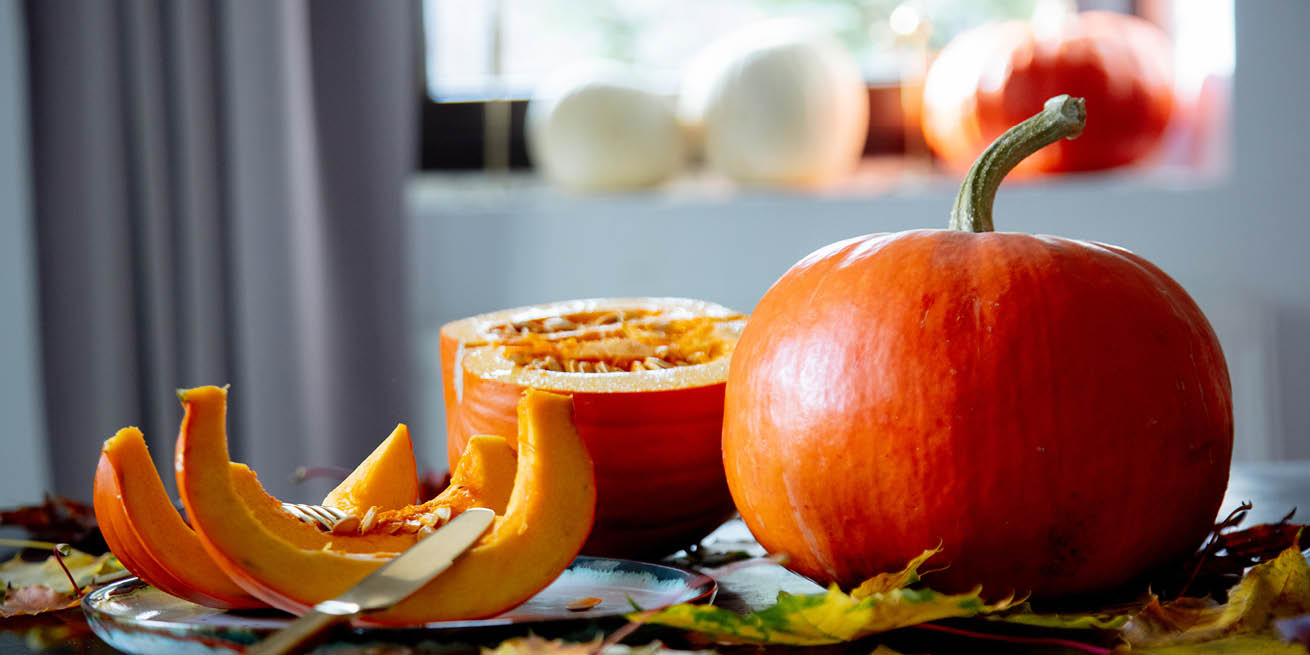With Fall in full swing, it seems like pumpkin is everywhere. Pumpkin spice lattes, pumpkin pie, pumpkin scented soaps and candles—it’s easy to feel like it’s pumpkin overload. But did you know our favourite fall gourd is actually a great source of vitamins and minerals? Keep reading to learn more about the nutrition punch that pumpkin packs and be sure to visit the pros to learn more about additional nutrition supplements.
Vitamin A
Finding it hard to see in low light? Bring on the pumpkin. The vitamin A found in pumpkin plays a prominent role in promoting good eyesight and eye health. It’s also an important vitamin in forming and maintaining healthy teeth, soft tissue, and skin. So how much pumpkin do you need to hit your vitamin A intake? Not much! One cup of pumpkin provides approximately 200% of your daily vitamin A needs.
Vitamin C
Fighting off a seasonal cold or flu? You might want to make sure you’re getting enough vitamin C. Not only is it important for your immune system, it also helps your body heal wounds, form blood vessels, and research suggests it may even reduce your risk of developing cataracts. Where can you add vitamin C to your diet? Pumpkin. A one cup serving has nearly 20% of your required daily intake.
Potassium
While bananas are known for their high levels of potassium, don’t discredit pumpkin, either. A one cup serving of pumpkin contains over 10% of your daily potassium needs, which supports your body’s muscles, can contribute to healthy blood pressure, and helps to maintain normal levels of fluid inside your cells.
Fibre
While fibre isn’t a vitamin, it’s still important to achieving a healthy and balanced diet. Fibre helps in digestion, making you feel full and satisfied, and can keep your, ahem, bathroom schedule running smoothly. It also helps to normalize blood sugar and lower cholesterol for improved heart health. While pumpkin does contain fibre, it’s pumpkin seeds that are rich in this, boasting 12grams of dietary fibre—almost half of your daily needs—in one cup.
So, how should you go about adding more pumpkin to your diet? A slice of pumpkin loaf or a pumpkin muffin might be tempting (and we’re all for treating yourself!) but for optimal health and nutrition benefits, consider adding unsweetened pumpkin puree to a smoothie, making a creamy pumpkin soup, or topping your favourite salad or yogurt parfait with pumpkin seeds. Bon appetite!

